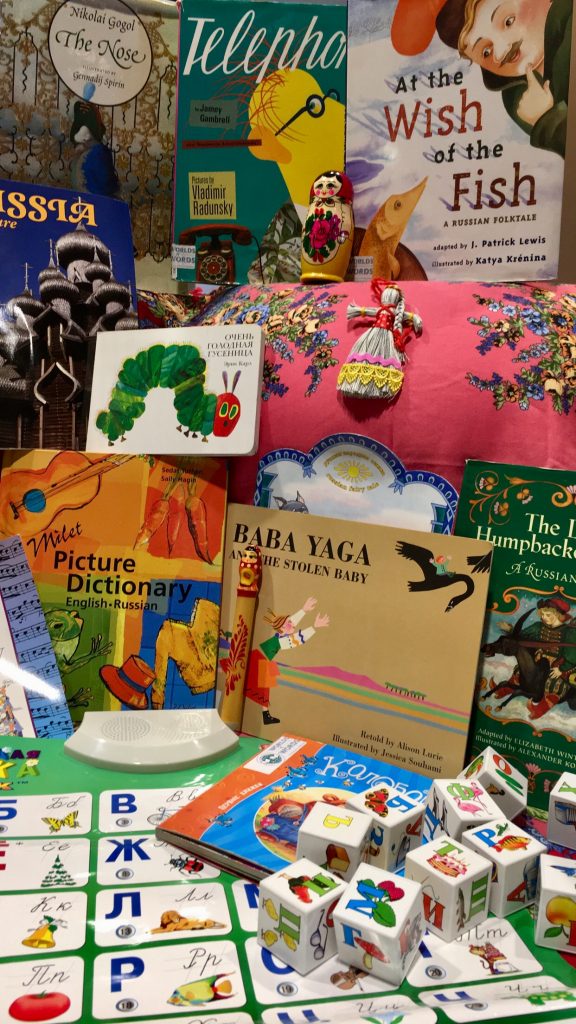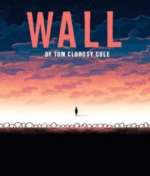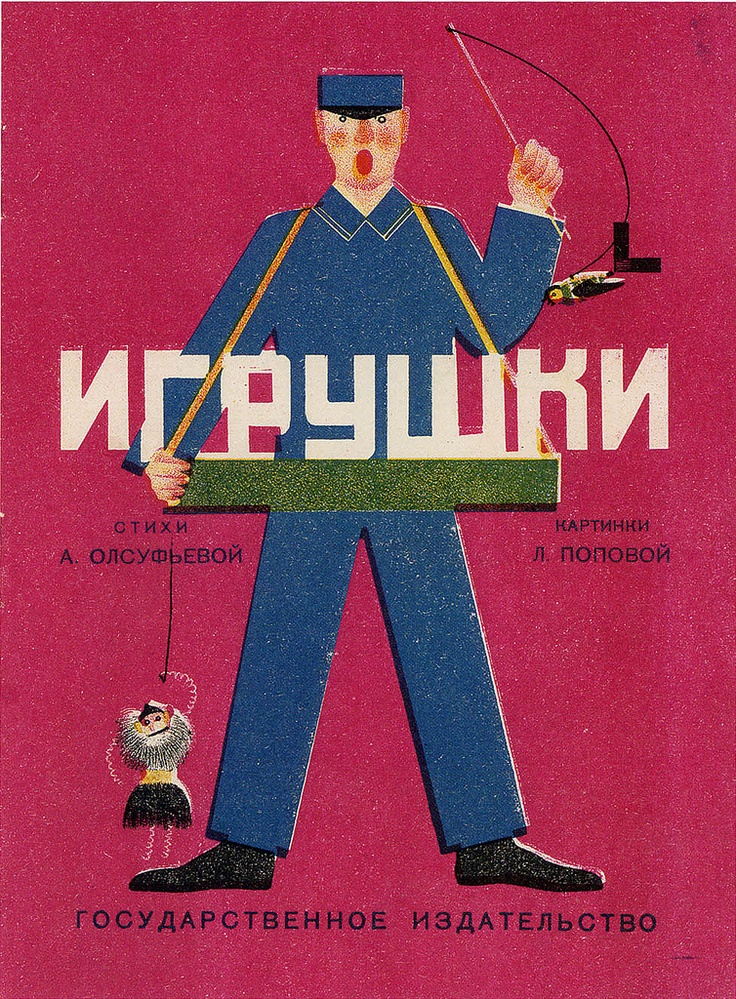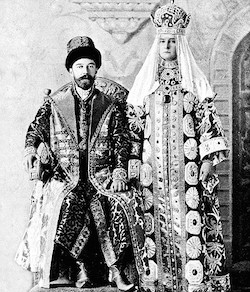
Explore Russia with hands-on activities for children of all ages!
• Listen to read alouds,
• Write your name in Russian,
• Play traditional Russian games,
• Engage in art activities,
• And of course, BOOKS!
Snacks will be provided. Free professional development available for teachers. No RSVP.
We have two Russian Language and Culture Kits. This year we have a consultant who will deliver the kit to your school and work with you to implement strategies in your classroom free of charge. Let us know if you’d like to check the kit out. Learn more about our Global Story Boxes and Language and Culture Kits or to request a box or kit.
Free parking is available at the surface parking lot north of the intersection of First and Vine. Paid parking is available at the Second St. Garage next door to the College of Education. Located just off of the 2nd St. streetcar stop.
by Yoo Kyung Sung, University of New Mexico, Albuquerque, NM
 Language binds the past to the present. With the advent of high-tech, wireless devices that is even more evident as people interact in new and unique ways reflecting rapid evolution in language. New words are born every day while other words slip into obscurity. In many ways, everyday language becomes a “fashion” as it mirrors social changes, trends, and contemporary issues. Historically linked language became really evident to me some weeks ago when I was watching a Korean reality show. An actor in his late 40’s used the word “Soviet” in place of Russia. When hearing this, other participants teased him as a veteran of the Ice Age. Continue reading →
Language binds the past to the present. With the advent of high-tech, wireless devices that is even more evident as people interact in new and unique ways reflecting rapid evolution in language. New words are born every day while other words slip into obscurity. In many ways, everyday language becomes a “fashion” as it mirrors social changes, trends, and contemporary issues. Historically linked language became really evident to me some weeks ago when I was watching a Korean reality show. An actor in his late 40’s used the word “Soviet” in place of Russia. When hearing this, other participants teased him as a veteran of the Ice Age. Continue reading →
by Yoo Kyung Sung, University of New Mexico, Albuquerque, NM

“Russian children’s literature and culture are obscure subjects in the West. When they come up in a conversation, even the most Russia-savvy students shrug their shoulders and produce a genuinely puzzled look on their faces “ (Balina & Rudova, 2008, p.xv,)
Earlier I looked at two books, Breaking Stalin’s Nose and Arcady’s Goal, set in repressive Stalinist Russia. I then introduced The Family Romanov: Murder, Rebellion & the Fall of Imperial Russia, an informational text describing the establishment of the Soviet Union. In doing so I developed a real curiosity about the development of children’s literature written in Russia. Continue reading →
by Yoo Kyung Sung, University of New Mexico, Albuquerque, NM
 In the story Queen Victoria’s Bathing Machine (Whelan, 2014), the queen loves to swim. Her swimming is not without a dilemma: how does a queen swim and still maintain “propriety?” The more she thinks that she shouldn’t swim, the more she wants to swim. In the end, her husband solves the problem. Sharing this not so public side of Queen Victoria is what makes this a truly delightful book. In the illustrations, the queen isn’t depicted with glamorous looks or in elegant dress, despite the fact that she was one of the most powerful monarchs in Europe. Instead, she looks like any ordinary middle aged woman Continue reading →
In the story Queen Victoria’s Bathing Machine (Whelan, 2014), the queen loves to swim. Her swimming is not without a dilemma: how does a queen swim and still maintain “propriety?” The more she thinks that she shouldn’t swim, the more she wants to swim. In the end, her husband solves the problem. Sharing this not so public side of Queen Victoria is what makes this a truly delightful book. In the illustrations, the queen isn’t depicted with glamorous looks or in elegant dress, despite the fact that she was one of the most powerful monarchs in Europe. Instead, she looks like any ordinary middle aged woman Continue reading →
by Yoo Kyung Sung, University of New Mexico, Albuquerque, NM

“President Putin.”
“The Cold War.”
“James Bond, 007!”
“Gymnastics.”
These are response from my students when asked what they know about Russia. Their knowledge about Russia is based on recent events with typical historical Hollywood representations: Continue reading →



 Language binds the past to the present. With the advent of high-tech, wireless devices that is even more evident as people interact in new and unique ways reflecting rapid evolution in language. New words are born every day while other words slip into obscurity. In many ways, everyday language becomes a “fashion” as it mirrors social changes, trends, and contemporary issues. Historically linked language became really evident to me some weeks ago when I was watching a Korean reality show. An actor in his late 40’s used the word “Soviet” in place of Russia. When hearing this, other participants teased him as a veteran of the Ice Age.
Language binds the past to the present. With the advent of high-tech, wireless devices that is even more evident as people interact in new and unique ways reflecting rapid evolution in language. New words are born every day while other words slip into obscurity. In many ways, everyday language becomes a “fashion” as it mirrors social changes, trends, and contemporary issues. Historically linked language became really evident to me some weeks ago when I was watching a Korean reality show. An actor in his late 40’s used the word “Soviet” in place of Russia. When hearing this, other participants teased him as a veteran of the Ice Age. 

